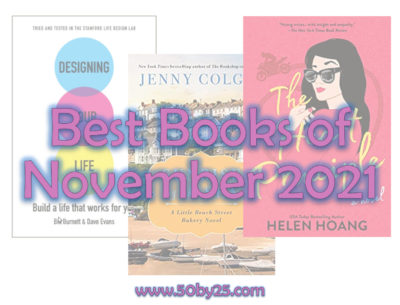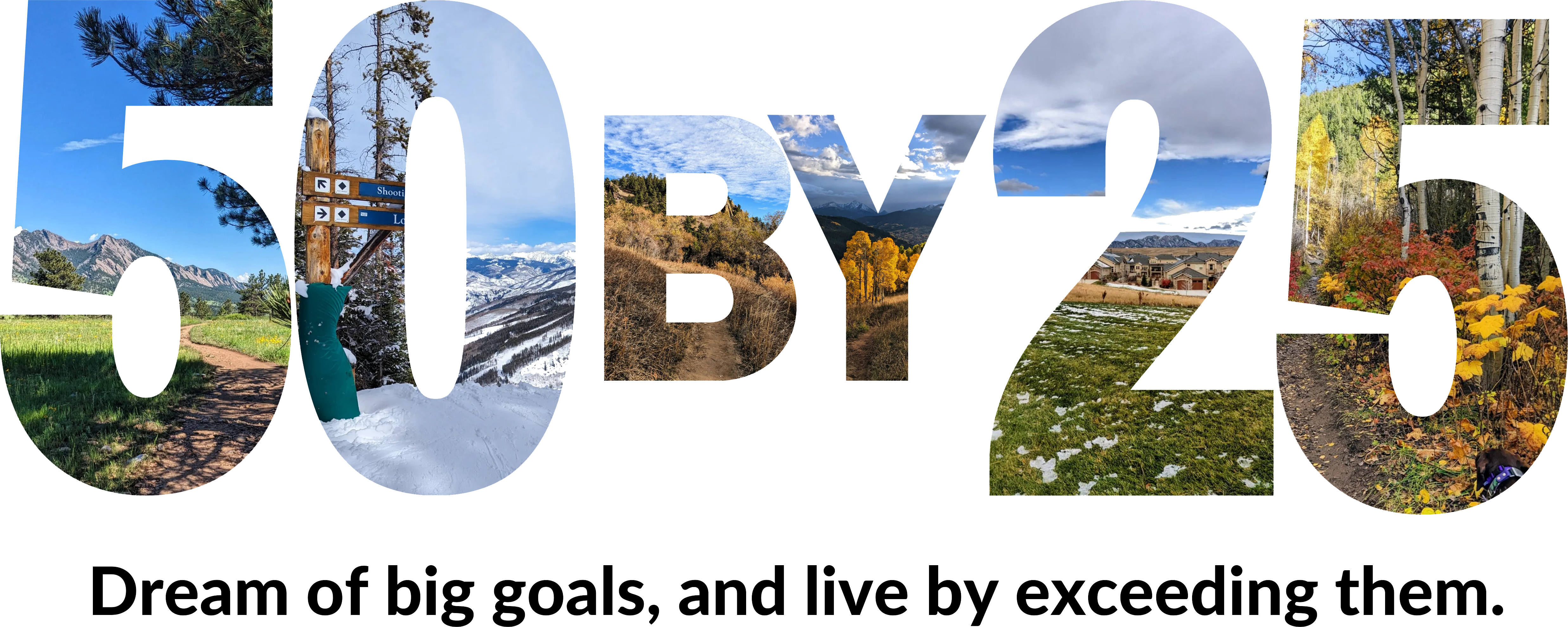This is a catch up post, but includes all nine books I read in November 2021.

5 stars:
The Heart Principle, by Helen Hoang: Anna is a professionalist violinist who is on a break from her career due to burnout, when her longtime boyfriend throws her another curveball and declares he wants an open relationship. While she’s always been a people pleaser, Anna decides to break with that and have a one night stand herself – but as you can imagine with a romance novel, it doesn’t end there. This was not your typical rom com novel, though, and delved into serious topics like parental caregiving, Asperger’s, infertility, and family gaslighting. I typically prefer a book that wraps everything up neatly, but even though this wasn’t quite as Pollyanna-ish at the end, I loved it. Highly recommend.
Sunrise by the Sea, by Jenny Colgan: Although I didn’t fully remember the other Beach Street Bakery books, it was delightful to reacquaint myself with Polly, Huckle, Reuben, and Kerensa – and I loved the new characters, Marisa and Alexei, as well. Marisa has become depressed and agoraphobic after the death of her beloved grandfather, and she finds herself shuffled out to isolated Mount Polbearne to try to recover. While Jenny Colgan’s books often deal with a lonely main character, this was much more somber than her others, and isn’t nearly as light. As a postscript, Colgan tells us that she had initially conceived of this as being set during the early stages of the COVID19 pandemic, which helps to explain more of the isolation and loneliness – I wish she had stuck with that premise instead of altering it last minute. However, I still really enjoyed it; just be forewarned that it’s not as uncomplicated a read as most of her other novels.
Designing Your Life: How to Build a Well-Lived, Joyful Life, by Bill Burnett, Dave Evans: I love, love, LOVED this book and have been citing it numerous times in the months since I read it. The authors employ design thinking to help you figure out what you want out of your career and how you can design a life you’re passionate about. It was a big aha moment for me to realize that there might be MANY perfect options, not just one, and my goal was not to find the absolute best one but simply find one that works for me. There are a lot of great exercises in it, and for once, I found myself actually doing some of them. It definitely made me think more about the career goals I’m pursuing and whether they are the right ones for me. Highly recommend for everyone!
4 stars:
The Biggest Bluff: How I Learned to Pay Attention, Master Myself, and Win, by Maria Konnikova: My company brought in Maria Konnikova for a guest lecture, and it inspired me to read this book. I’m so glad I did! Konnikova was incredibly relatable in how she described her journey from knowing nothing about poker to becoming a WSOP champion, and her narrative cleverly woven in a lot of other insights on decisionmaking that can be applied to other disciplines. I really enjoyed following her journey, and it made me want to perhaps learn poker myself 🙂
Wish You Were Here, by Jodi Picoult: Diana seems to be on the verge of having it all – the dream boyfriend who’s about to propose, a major project at work that should land her a promotion – when COVID hits, and she ends up going alone on a vacation to the Galapagos and getting stranded as the world shuts down. However, things are not as they seem – get ready for some major twists and turns! I found the first half of the book pretty slow, and Diana to be incredibly entitled and unlikeable, but the plot twist got me really interested again. I read with avid interest the emails from Diana’s boyfriend Finn, describing his experience as an exhausted surgeon as COVID ravaged the city – I wished the whole book had been about this! But with the plot twist halfway through, I kind of got my wish. Meanwhile, while the book seemed at face value to be a bit woo-woo and imaginary, the author’s note at the end suggested that perhaps we don’t know as much as we think about comas, dying, and what the people who go through those truly experience. I would recommend it, but it wasn’t my favorite of Picoult’s books.
3 stars:
The Whiteness of Wealth: How the Tax System Impoverishes Black Americans–And How We Can Fix It, by Dorothy A. Brown: A powerful and in-depth look at our tax code and the ways in which it perpetuates systemic racism, providing many tax credits and other incentives that disproportionately benefit whites. The content is very accessible, even for someone who’s not an accountant and doesn’t have an interest in tax law; while dry at times, I found it reasonably interesting, and the author, Dorothy Brown, does her best to include anecdotes to make it real / more interesting). However, Brown often mixed facts in with opinions, which felt a bit deceptive and problematic. Another reviewer, Dave, captured my thoughts perfectly when he said: “Some of the personal examples used by the author felt as though there was a giant chip riding on her shoulder that influences all of her perspective throughout the book. I found the chapter on the myth of education as a means of escape to be particularly troubling. Yes, there is an inherent problem with saddling young people with enormous debt as a result of their attempts to escape economic hardship. But there has to be an element of personal choice and responsibility which plays a role in life, and Brown doesn’t appear to account for that.” I found about half the ideas proposed to be things I wanted to get behind and fight for, but the other half felt extremely subjective rather than “fair” as Brown purports to seek. I’m really glad I read this to open my eyes to more systemic injustice, and would encourage others to do so as well, but I think it’s important for people to read it with a bit of skepticism.
Bet on It, by Jodie Slaughter: When Aja moves to the small town of Greenbelt, South Carolina, her anxiety disorder makes it hard to make friends – so she takes baby steps by attending weekly bingo nights with the less-threatening elderly residents in town. However, when one of the bingo regulars suffers an injury and her grandson Walker comes to town to take care of her, sparks fly between Aja and Walker. I really appreciated all the thoughtful portrayal of mental health struggles, which felt very real and well-done, and loved how empathetic most of the characters were to these struggles. But Walker was a bit of a caricature of a southern guy from the wrong side of the tracks, and the romance between Aja and Walker went from 0-100 so quickly that it felt contrived. I also found some of the dialogue a bit weird – while all the action takes place in the south, it seemed like the author alternated between writing in a dialect and writing normally (“just fuckin’ with ya”) – and since I’m choosing that example, I’ll also mention that Walker seemed to barely be able to form a sentence without swear words, which did not endear me to him. In all, this was cute, but wasn’t my favorite rom com.
The Other Brother, by Lauren Baratz-Logsted: Mona’s husband, Jack, is the younger brother of Denny Springer – the lead singer in The Greatest Rock-and-Roll Band In The World (which I think is supposed to be a modern day Beatles). As Jack and Denny are not at all close, Mona invites Denny to join her family for a summer in Connecticut… but she’s shocked when Denny actually shows up to her impulsive invitation. While the book was reasonably enjoyable, I felt like it lacked a point. 2/3 of the way in, I felt like the story was still being set up, and I didn’t understand what the central plot point was or what conflict needed to be resolved. There was a big reveal at the end that made me feel like Mona had deceived the reader the whole time, particularly since the book was written in the first person, and I ended the book feeling like it had all been a bit selfish and pointless. Interesting concept, but there wasn’t enough meat to it to really grab me.
2 stars:
Run Fast. Cook Fast. Eat Slow.: Quick-Fix Recipes for Hangry Athletes, by Shalane Flanagan and Elyse Kopecky: I was excited to read this, after really enjoying many of the recipes in “Run Fast, Eat Slow” – but I found “Run Fast, Cook Fast, Eat Slow” to be rather watered down in comparison. Although there wasn’t as much overly obvious nutrition advice in the beginning (yay!), some recipes were repeated and barely tweaked (e.g., different flavor combos for the Superhero Muffins). Meanwhile, most recipes seemed to be dumbed down to be nothing special, and forced you to figure out the flavor combinations yourself rather than being more prescriptive about what spices to use. I didn’t save nearly as many recipes in this cookbook as I did in the first one. If you hate cooking and/or are afraid of it, I could see this helping you out with the basics, but for anyone trying to learn new recipes, I wouldn’t recommend this. I was particularly annoyed by the end of the book, which featured letters from readers professing their love for the first book – which felt very self-congratulatory and didn’t add anything to this book. In general, this felt kind of like filler to milk the success of the first book.
Any book recommendations for me? Follow me here on Goodreads to keep up with what I’m reading in real time.
